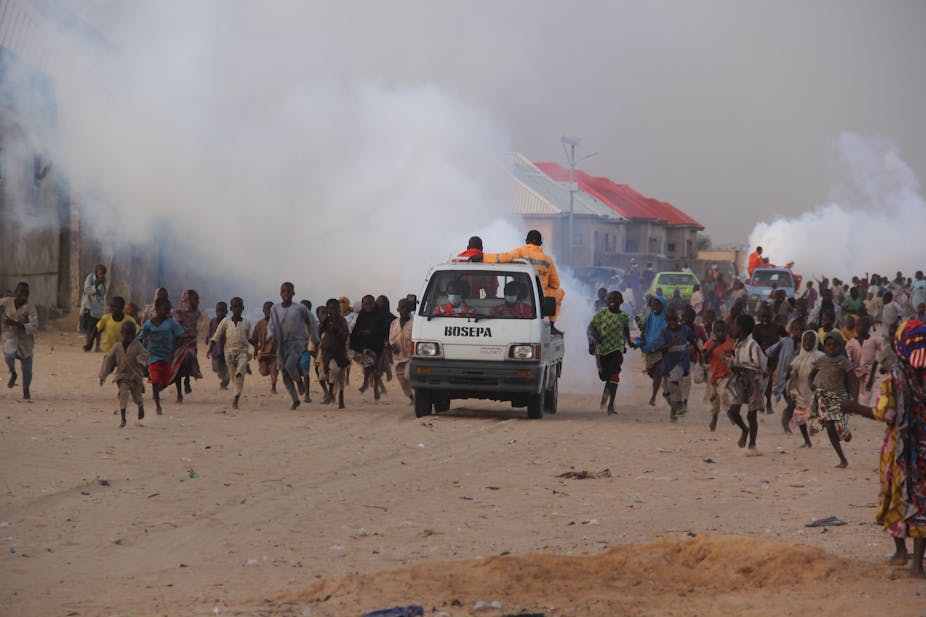Africa is home to 41 of the International Monetary Fund’s 59 Low Income Countries. These are more structurally vulnerable to external shocks such as COVID-19. The pandemic is affecting economies as governments implement increasingly aggressive lockdown procedures to stem the rate of the spread of the virus. It is also straining the continent’s generally weak national health systems.
At the same time the global economic slowdown triggered by the pandemic is taking a toll on key commodity sectors and tourism. These are significant revenue earners for many countries across the region.
As a consequence, the economic impact of COVID-19 has sparked calls from various stakeholders for a blanket moratorium (or standstill) on all debt service due to African creditors, be they bilateral, multilateral or commercial. In a letter to the international community, African finance ministers called for an immediate waiver of all interest payments on public debt and sovereign bonds. In the case of the private sector, the ministers identified the immediate waiver of all interest payments on trade credits, corporate bonds and lease payments. They also called for the activation of liquidity lines for African central banks.
These requests have formed the basis of a growing narrative for a blanket debt moratorium for Africa. The IMF and World Bank have thus far not publicly supported this call. They have instead asked bilateral and multilateral creditors in International Development Association countries to provide debt forbearance.
These initiatives resulted in a G-20 communiqué announcing a debt suspension initiative jointly agreed with the Paris Club. This stance has provided a measure of assurance to commercial and private lenders. Just like the IMF and World Bank, commercial and private lenders recognise the unintended consequences a blanket debt moratorium could have. However, commercial creditors know they need to play a role due to the magnitude and the unprecedented nature of the phenomenon that we are currently facing.
But if the debt suspension initiative is applied as a general blanket solution, it risks costing African countries much of the hard won gains many have achieved over the past 15 years. These gains relate to access to international capital markets and the relatively lower cost of borrowing. Many African countries have been able to access international commercial finance for the first time during this period. This has not only broadened the pool of capital they can tap, but aided in the building of a credit history in the international financial markets. As a result some governments have seen reductions in their cost of debt (for example, Ghana managed to lower the interest rates on its Eurobond issuances since 2015).
Nor would the proposed blanket moratorium be a victimless action. A significant proportion of the pool of international capital is derived from private and state pension schemes, educational endowments, foundations and charitable trusts. Such institutions have a fiduciary duty to make investment decisions for the benefit of their beneficiaries. These include some of the most vulnerable in society, both in developed and developing economies, such as the elderly, as well as a vast array of employees (some of whom are low paid) who are saving for their retirement. Losses from their investments will affect many materially.
What’s been gained
Gains over the past 15 years have not just been in terms of pricing. Some governments (such as Ghana, Nigeria and Kenya) have even managed to issue bonds with much longer maturities in the Eurobond markets.
In addition, international commercial investors have helped to develop and deepen local currency credit markets. The development of local currency bond markets has enabled African government administrations to borrow locally. This has reduced their reliance on bilateral and multilateral lenders or using short-term paper instruments. Short-term paper instruments have to be repaid within a year from the date of issue.
Access by African governments to domestic bond markets as well as global financial markets is very important to the continued and sustainable development of African economies. The pool of capital that these markets provide is substantially larger than the developmental finance or multilateral resources. In other words, the size of the global debt capital markets dwarfs the size of the resources of the multilateral organisations.
Even if market access were maintained after a blanket debt moratorium for Africa, it would probably come at a higher cost of borrowing.
Moreover, given that most hard currency debt for the private sector is benchmarked off the sovereign, this has the potential to significantly increase financing costs to growing businesses across the region. Hence the repercussions of this action are not just for governments but businesses too. For a continent with such a young demographic, taking actions that would likely increase the cost of much needed funding for business expansion or infrastructure investments can be very costly. The expansion of businesses and investments in infrastructure are the engines of growth and job creation.
Answers to a solution
In drawing up workable solutions, there needs to be clear recognition of the crucial role commercial creditors will play in assisting Africa out of the current crisis and beyond.
The obvious question is where the capital will come from to fund the government deficits. A rough estimate puts the cost of the pandemic above the US$4 trillion mark. Even at a trillion dollars it is unlikely that the IMF’s balance sheet will be enough to help all African countries to reach a more sustainable path.
In this context it would be ideal to mobilise commercial lenders and investors to help bridge the financing gap many low income countries, especially those in Africa, are likely to face.
It is rational to expect that lenders and investors understand that time is of the essence and that breathing time is needed. So, in these unprecedented times, lenders and investors need to join the dialogue and be part of the solution to prevent unintended consequences that can be costly for Africa.


